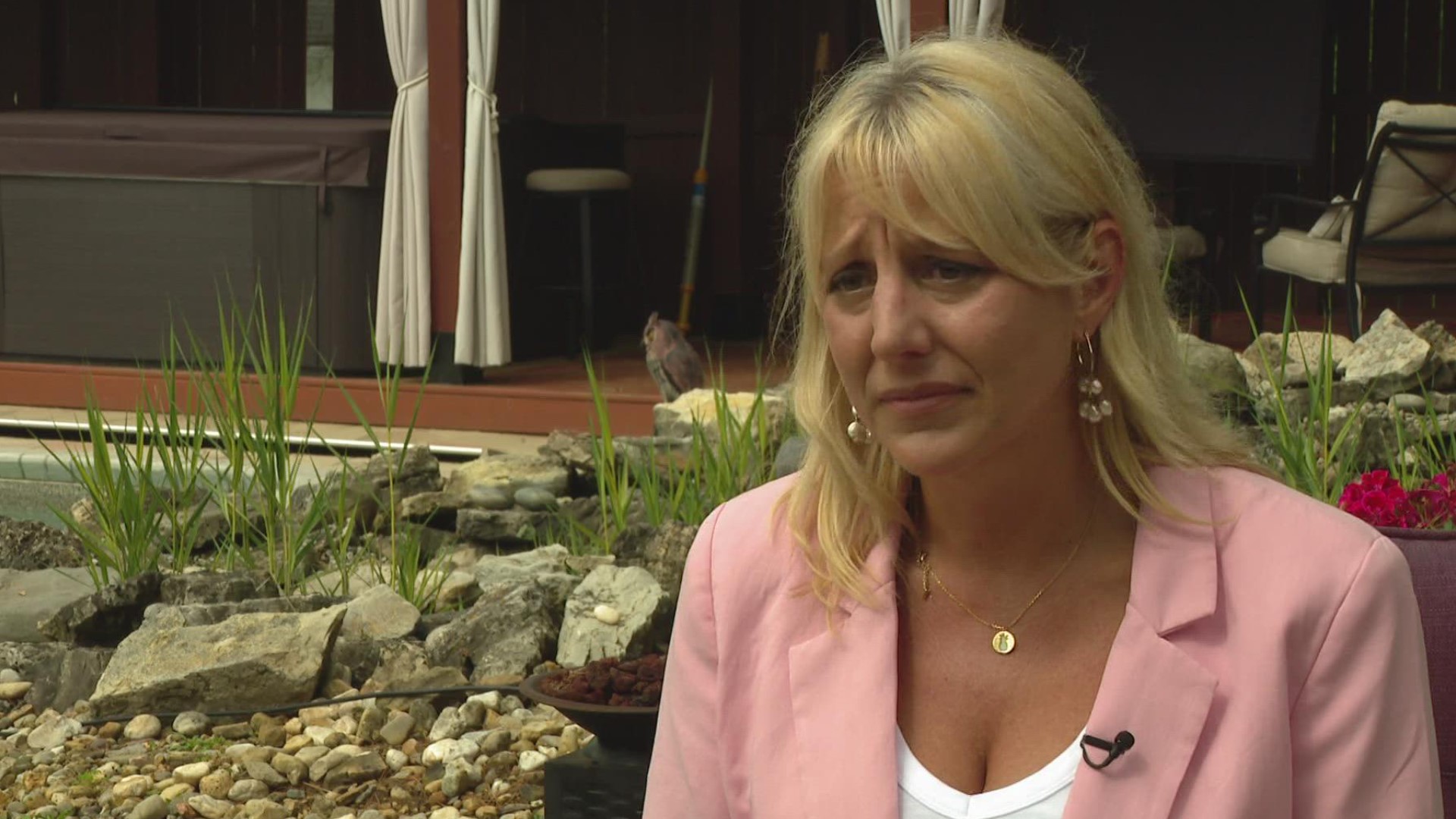PLAINFIELD, Ind. — Robin's backyard in Plainfield is built for a party. There's an in-ground pool, outside bar, firepit, and a gazebo. It's the perfect place to entertain, and this spring, Robin is hosting a graduation celebration. But this year, the bar will be alcohol-free.
"They will definitely be sober parties, Robin said. "Tea and lemonade and soda, and honestly it's easier and it's way cheaper."
Saving money is just one bonus, there is also a sense of accomplishment.
On June 11, Robin will celebrate her recovery by marking one year of being alcohol-free.
"I really forgot what it was like to be me," Robin said.
Robin remembers her drinking escalating and said during the pandemic, it got worse.
"There was a lot of isolation. First, it was two weeks shut down, and it was a month, and then it turned into two months," Robin said.
She's not alone. During the pandemic year to year U.S. liquor store sales skyrocketed by more than 230% during the pandemic.
And Johns Hopkins researchers found that 60% of people polled report drinking more since the start of the pandemic.
For Robin, it started with a glass of chardonnay. She considered it a "lady's drink." Over time, she drank a bottle of wine by herself and then switched to bottles of vodka.
She remembers her family and friends trying to intervene. They would talk to her and implore her to stop drinking. She said instead, she started to sneak.
She would hide bottles in her boots, in registers at home, and in the wheel well of her car. One night, she went too far. She said her behavior was threatening to herself and her husband. He called the police.
"I had gotten really intoxicated with my husband and then we went out to dinner. I don't remember it at all. I ended up in jail. It was my darkest hour," Robin said.
It led to Robin seeking help at Landmark Recovery Center on the northwest side of Indianapolis. She handed over her phone and committed to inpatient treatment and therapy. She had a lot of worries about cost and the impact on her career.
"What is going to happen with my job? What is going to happen here? It's not their first rodeo. They have done this a million times, unfortunately, but they can point you in the right direction," Robin said. "I knew I had a problem and wanting to get help for that problem was the biggest obstacle."
Robin learned about triggers, and before leaving the program, she matched with a coach for continuity, support, and accountability.
"There are processes in place to help you once you walk out that door. They don't just say 'thank you, bye bye, good luck,'" Robin said.
Landmark Recovery coach Toni Wasden talks and meets with Robin regularly.
"People who experience alcohol abuse problems are not bad people. It doesn't make them bad people and I think the stigma is one of the most dangerous things about it," Wasden said. "People sometimes don't get help because they fear the stigma, they fear how they will be perceived socially and how they'll be perceived professionally and things like that."
Wasden said getting rid of the stigma would allow a lot more people to get help and live up to their full potential.
Robin said it wasn't easy, but she's grateful her relationships and career survived. She feels more like herself and is determined to stay well.
"I feel great. I really do. Drinking Robin was not the Best Me. I am finally getting back to that point to where I am the Best Me, and my Best Me is really just making sure that people know that they are important."

